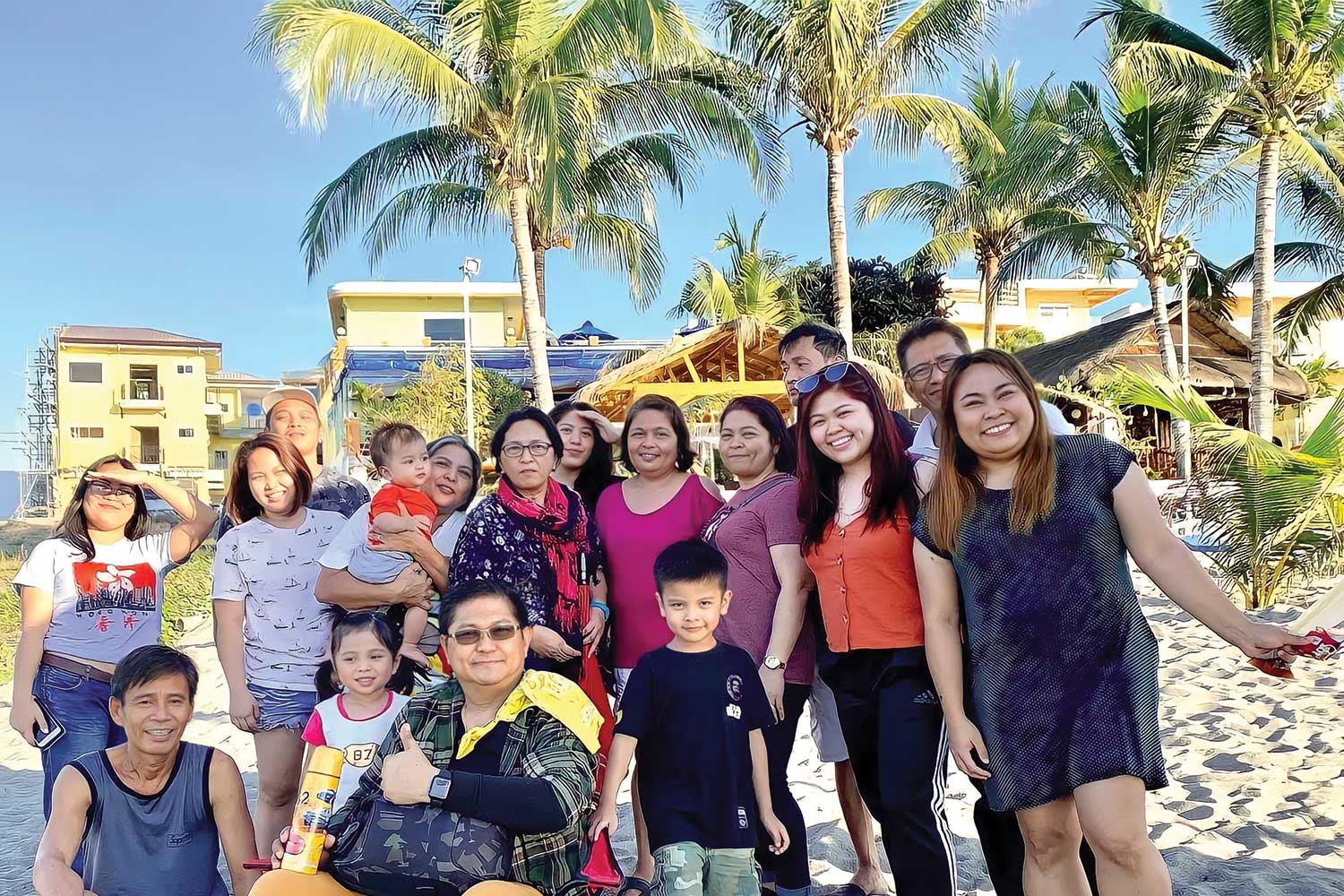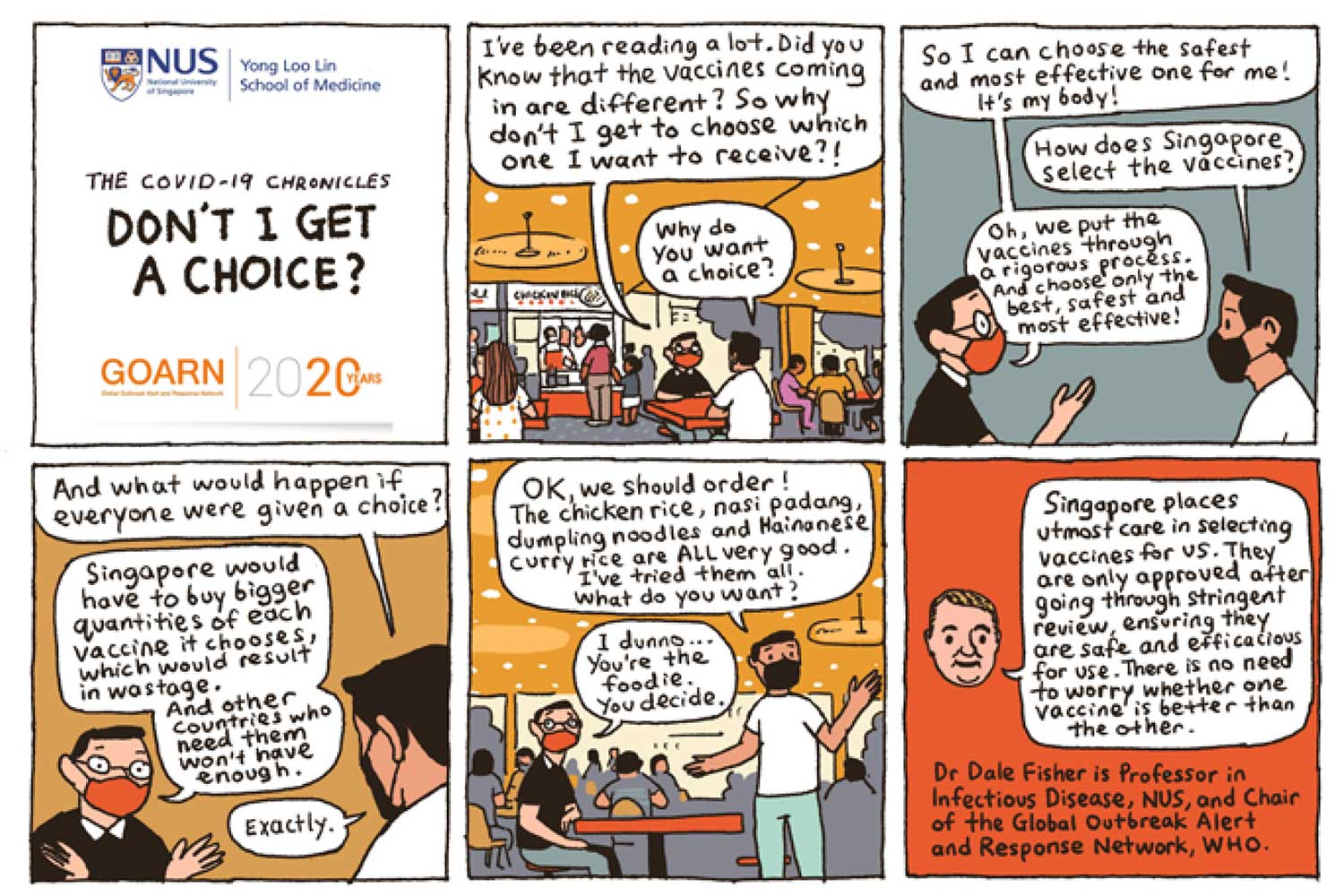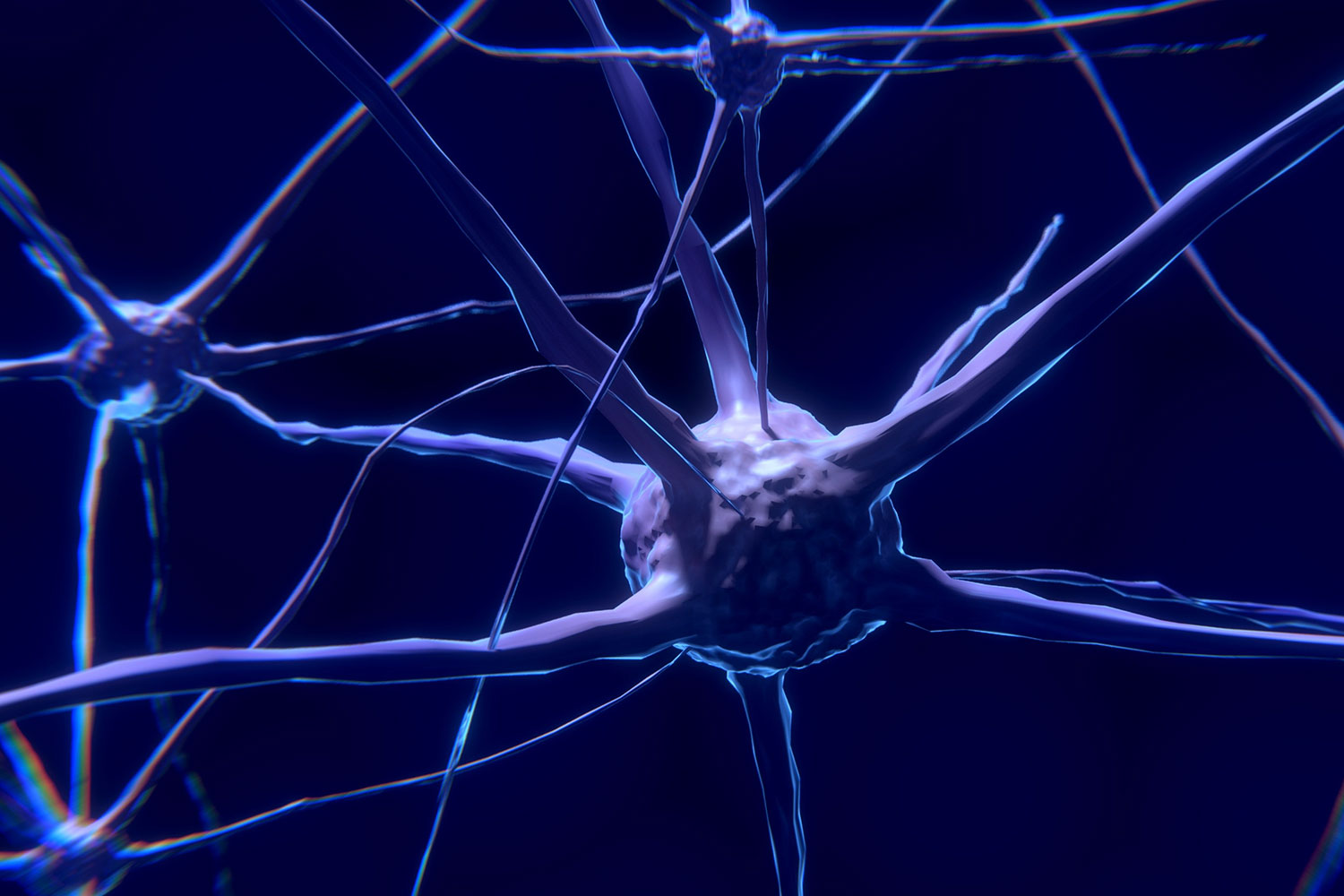
Issue 38 / May 2021
All In The Family
Teaching and Learning
in the Time of COVID-19
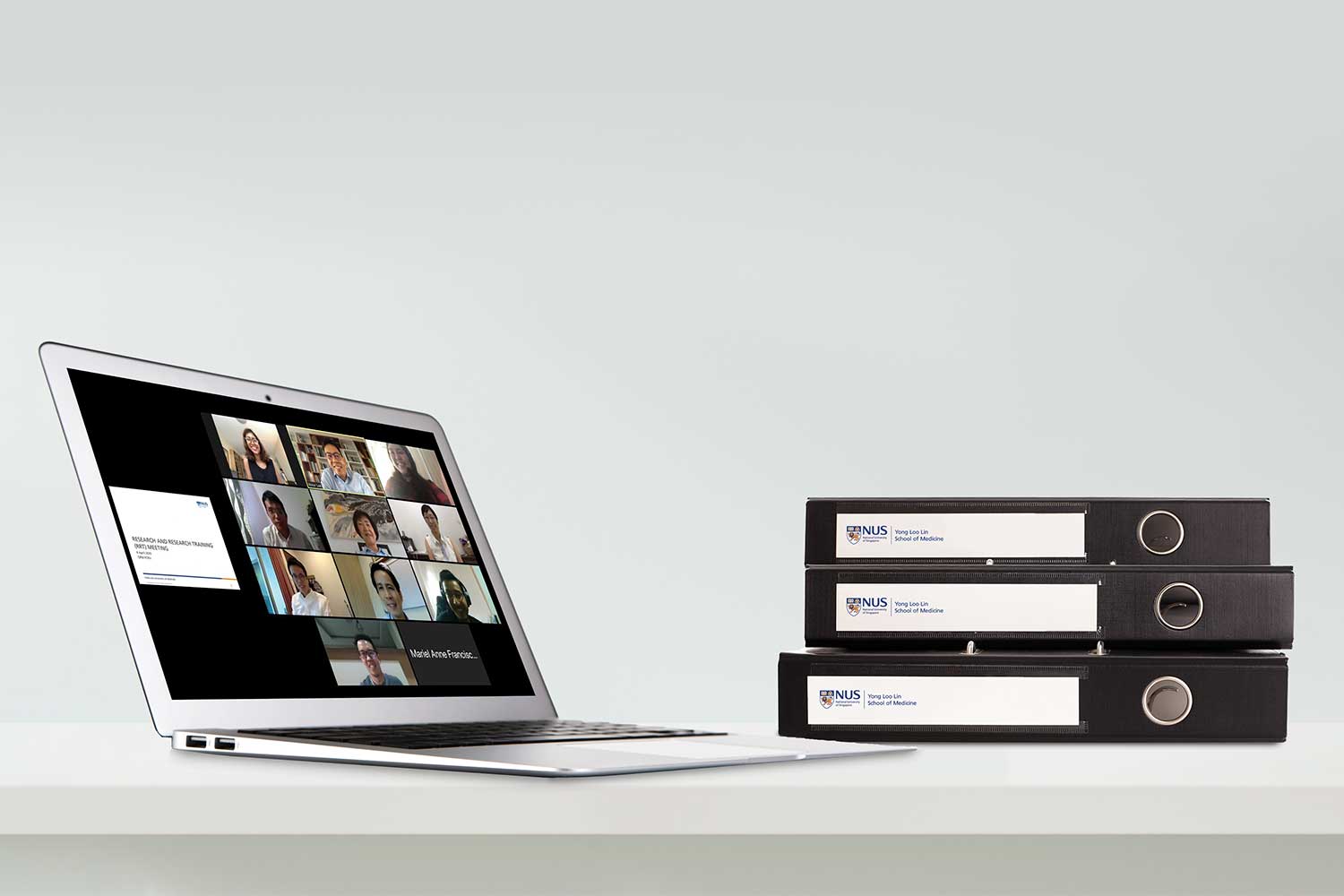
On the morning of 5 February 2020, we were brimming with excitement—fuelled with coffee and zest—at the Department of Family Medicine. Just weeks earlier, we had signed up to be the Department’s first academic scholars, under the mentorship of Professor Doris Young, Dr Goh Lay Hoon, Dr Victor Loh and Dr Anne Yeo.
eturning to our alma mater to explore academia in our chosen field of specialisation was a once-in-a-lifetime opportunity for us. However, our excitement quickly turned to uncertainty as the COVID-19 pandemic spread globally. Little did we know, that morning would be the last time we would see each other in person for some time. It would be a memorable journey through what was an unprecedented year for everyone.
Education
The first and most pressing task was to help our undergraduate education team adapt to the challenges brought about by the pandemic. As Singapore entered the Circuit Breaker period, we had to ensure that our Phase III medical students continued to receive quality clinical training while maintaining safe distancing measures.
Much of the undergraduate curriculum had to be converted to online teaching. To supplement existing lectures and workshops, we each crafted a Collaborative Learning Case (CLC) on two common presenting complaints to teach our students clinical reasoning. These case-based interactive sessions were taught to classes of almost 80 students over Zoom and were well received. We also helped to conduct our hallmark Simulated Clinic Teachings (SCT) online, where students got to interact with simulated patients and learn communication, diagnostic and management approaches. It was important to us that our students formed a perspective on how Family Medicine (FM) was contributing to the pandemic mitigation efforts. Thus, we organised a “Primary Care Response to COVID-19” online forum where students had the opportunity to interact with primary care physicians working on the frontlines and even interviewed foreign workers who were housed at the Singapore Expo.
A big part of FM learning occurs in-person at our GP clinics and Polyclinics. We kept in constant communication with our tutors on the evolving changes and restrictions with on-site clinical teaching. Determined to ensure continued clinical training in a safe manner, we assisted our industrious GP tutors to livestream their consultations to students while our polyclinic tutors valiantly continued in-person teaching. Our tutors’ commitment to teaching during what was a trying time operationally for their respective clinics was nothing short of inspirational to us. Wanting to finish the posting on a light-hearted note, we came up with an educational ‘end-of-posting game’ to the tune of the famous American gameshow “Who Wants to be a Millionaire?”. Students took turns to be grilled in very different ‘hot seats’ by our own Regis Philbin, Desmond! Nobody went home a millionaire, but everyone thoroughly enjoyed themselves.
The first and most pressing task was to help our undergraduate education team adapt to the challenges brought about by the pandemic. As Singapore entered the Circuit Breaker period, we had to ensure that our Phase III medical students continued to receive quality clinical training while maintaining safe distancing measures.
The pandemic did not just bring about challenges but also opportunities to take stock, try new methods and improve curriculum. Both of us worked on freshening up the FM Academic Project, which involves our Phase III students collecting observational data during their clinical attachments around important themes such as Rational Prescribing and Preventive Health. They are guided to present and discuss these observations in a meaningful manner at the end of their posting. Having reviewed the feedback received in recent years, we worked to improve the curriculum by adding new topics, introducing qualitative components and digitalising data entry. Video-based learning has been widely embraced by educators since the onset of the pandemic. Along with the incredibly resourceful NUS EduTech team and generous healthcare professionals from Jurong Polyclinic, we filmed a short video introducing primary care and its people to our young Phase I students. Learning how to teach effectively through video was an educational experience for ourselves. These curricular changes and additions were positively received by students and faculty alike.
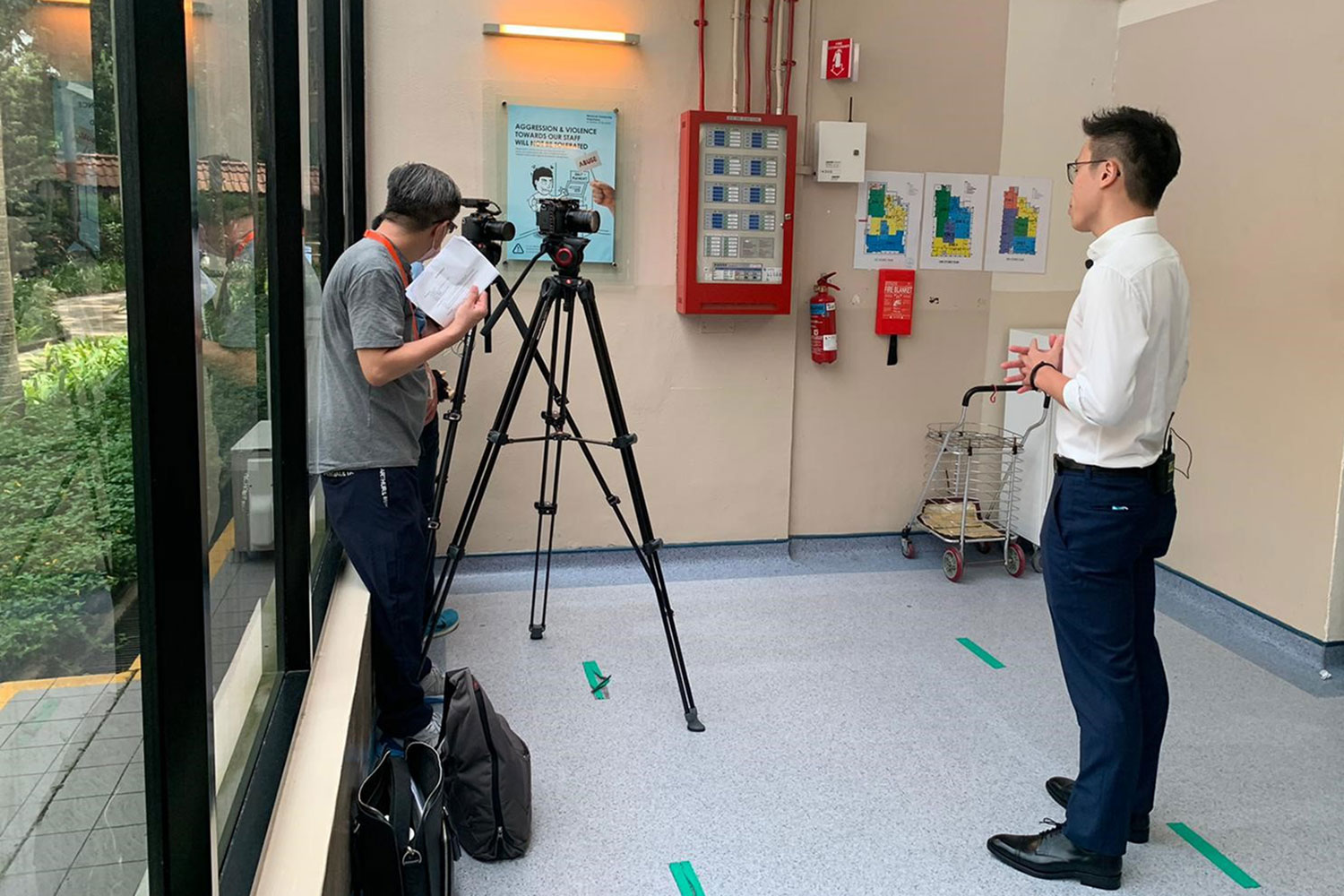
Yiyang filming for a video clip for the Phase I Early Polyclinic Experience in Jurong Polyclinic in August 2020. (Filming was done in strict compliance with existing COVID-19 safe distancing requirements.)
As budding medical educators, the past year has been one of tremendous learning and growth. There was a silver lining to the pandemic—we forged strong ties with our undergraduate education team, which we believe will be fundamental to our joint efforts in delivering quality education in years to come. Together with our team members, we were honoured and grateful to have our efforts in medical education recognised by the School through the NUS Fortitude Award in October 2020.
Research
Under the guidance of our mentors, we started research projects in the domains of Healthcare Data Analytics and Child and Maternal Wellness. Both have been awarded competitive funding.
Desmond’s research study focuses on using quality care indicators for the detection and management of chronic kidney disease (CKD) in primary care. It will extract retrospective secondary data for analysis, using a set of quality care indicators to assess the state of detection and management of CKD in National University Polyclinics (NUP) over the past three years. Through the analysis of the data, a risk prediction model will also be developed, to identify patients at higher risk of disease progression. This is also an international study, with overseas collaborators conducting similar studies, and results will be shared for comparison and analysis. The study has been awarded the NUHS Primary Care Physician Research Development Seed Grant and data analysis has started. At a research forum jointly organised by NUP and DFM, Desmond shared about the study with an audience that included various primary healthcare stakeholders. There was much excitement about its potential findings and implications on how we can manage CKD in primary care.
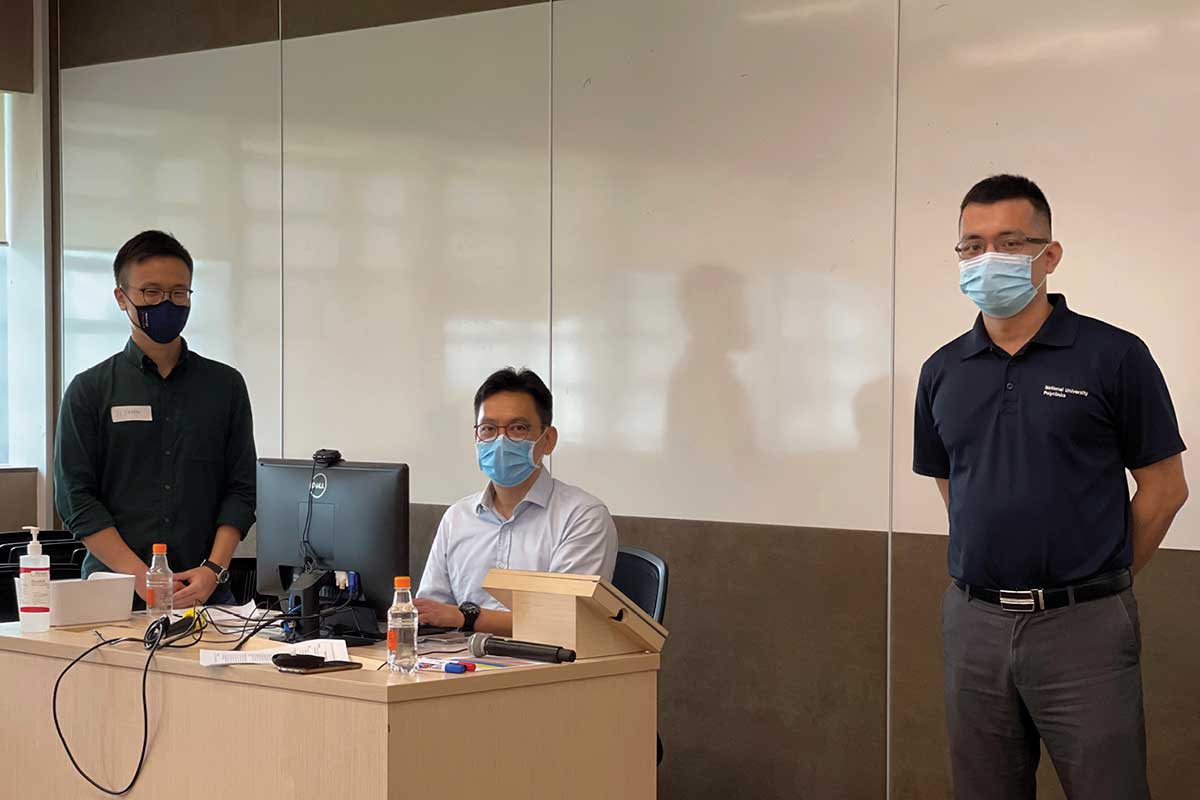
Desmond and Yiyang with Dr Victor Loh during a teaching session in March 2021.
Yiyang’s qualitative research on Primary Care Physicians’ (PCPs) perspectives on Postnatal Mental Health Problems (PMHPs) is timely given the recent announcement of the Ministry of Health’s intention to develop and implement a five-year Child and Maternal Health and Well-being strategy and action plan. PMHPs are prevalent and PCPs are well-placed to identify and manage them in the community. However, little research has explored their views and experiences. Findings from the study may highlight barriers to care, training needs and inform policy development. The study has also received seed funding from NUHS and is ongoing. Besides starting this project, Yiyang contributed to several publications in the Singapore Medical Journal, Hong Kong Medical Journal and Primary Care Diabetes.
Besides doing research, both of us also had the opportunity to participate in the teaching of research, having co-facilitated the NUHS FM Residency research workshops. We guided residents in taking their first steps into research, including developing a research question and conducting a literature review. It was inspiring to see young family physicians-to-be interested in research and coming up with exciting ideas. The series of workshops cumulated with the residents presenting their research proposals to faculty and fellow residents in December 2020. Lastly, Desmond mentored NUP Fellowship in FM (Advanced Specialty Training) trainees in starting their own research projects, ensuring the next generation of FM leaders would have strong grounding in research principles.
As budding medical educators, the past year has been one of tremendous learning and growth. There was a silver lining to the pandemic—we forged strong ties with our undergraduate education team, which we believe will be fundamental to our joint efforts in delivering quality education in years to come. Together with our team members, we were honoured and grateful to have our efforts in medical education recognised by the School through the NUS Fortitude Award in October 2020.
Development and training
In the past year, we were given many opportunities to develop our knowledge and skills in research and education. We attended research workshops that introduced us to research methodology as well as basic and intermediate statistics. The Scholarship of Teaching and Learning (SoTL) and Research in Medical Education (RIME) courses piqued our interest in health professions education and pedagogical research.
We were also given the incredible honour of joining the Asia Pacific Academic Primary Care Group, which includes leaders and mentors from various academic FM institutions. We attended their biannual meetings as scholars and shared in the discussion and discourse of ideas and innovations to further FM.
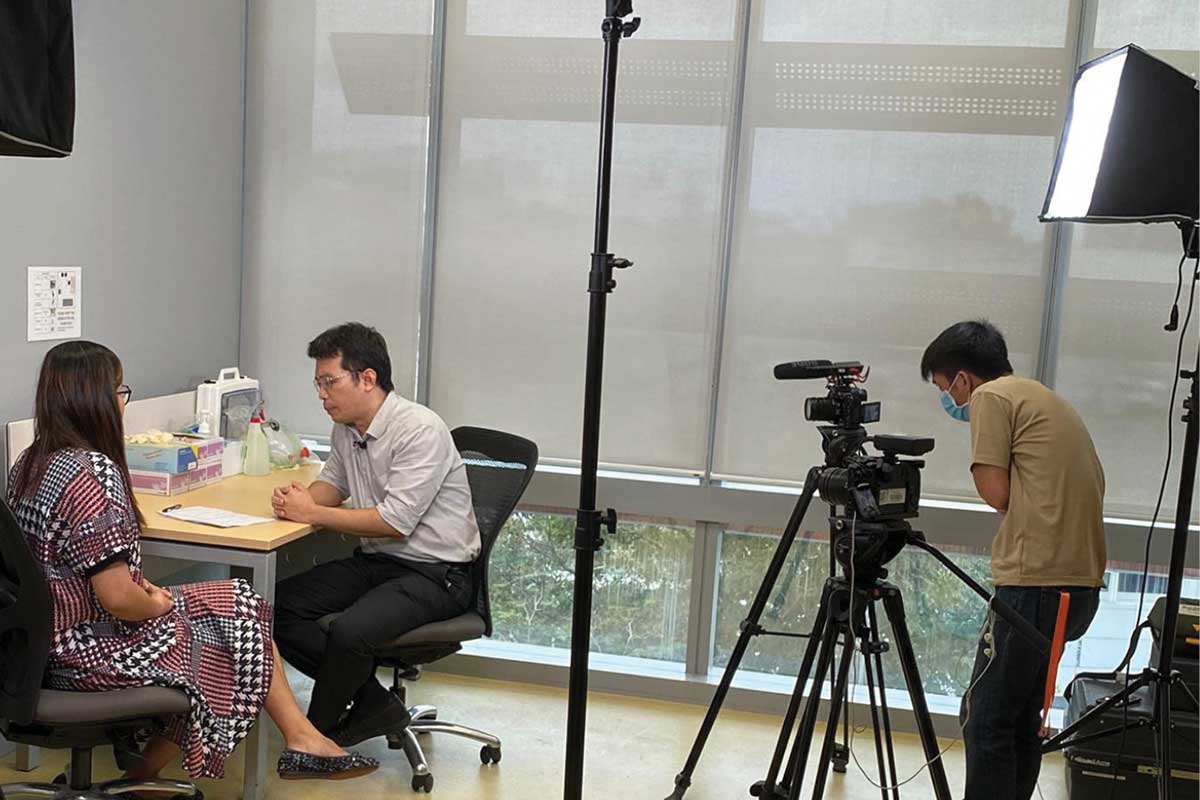
Desmond filming for a teaching video on Motivational Interviewing in August 2020. (Filming was done in strict compliance with existing COVID-19 safe distancing requirements.)
Looking back, we have come a long way since that first morning in February last year. Thankfully, we have stepped back into the office, with safe-distancing measures observed of course! Through the long days and countless Zoom sessions, our experience would not have been as rich if not for the mentors from our department who walked the journey with us.
Entering our second year, we look to build on the foundations laid and to go from strength to strength. Curriculum development and completing our research projects are priorities. We also hope to form new collaborations with local and international research partners. Finally, just as our mentors have done for us, guiding the two new scholars who recently joined our department is a responsibility we relish. It certainly feels like the journey has just begun and we are privileged to be part of a programme that heralds a bright future for academic FM in Singapore.

